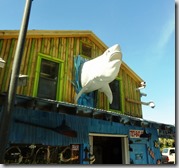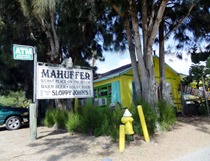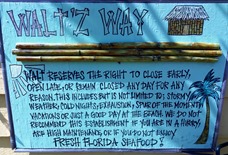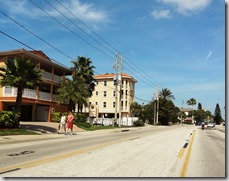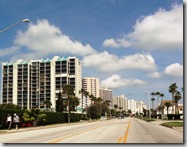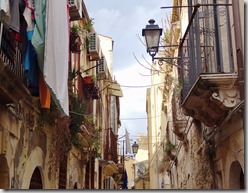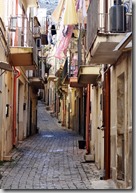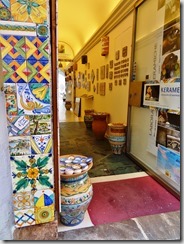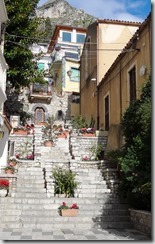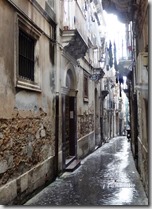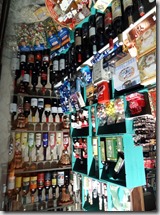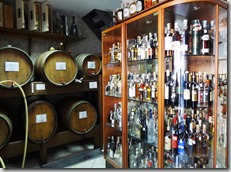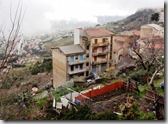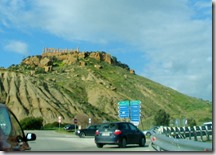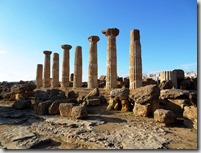I love travel, going places, new experiences,meeting people, haring idea and conversation. It’s great to get away from the office, go off-grid from phone and emails, leave the clock at the side of the road. It’s generative: I scribble notes about cultural differences, ironic juxtapositions, new ideas, exotic history to look up when I get home. Invariably, I end up filling the lower right corner of my agenda, the area reserved for blog topics, with lots of scribbled notes and impressions. Some link to pictures, others to people; some to plans, others to memories.
The pressure comes from having no time to organize pictures, to write impressions, or to organize a review until days later when I get home. Sometimes I can do a little on the airplane or waiting for security or a bus, but it often has to wait until I’m back in the Netherlands, after the pulse of work emails and phone messages are cleared, after the shopping is done.
 At the same time, I find that vacations facilitate reading.
At the same time, I find that vacations facilitate reading.
The e-reader has been great: my books, magazines, and newspapers are refreshed and locally available each morning, and I’m happy to flip open the cover and spend a few minutes catching up with comments and essays while idling near an ocean or a mountain. If I want to look up a bit of history or philosophy, then I connect for a moment and scratch the itch, then leave before email or skype start nagging.
A few of my better reads from the past week include:
- An article on the failed potential of Alex Rodriguez, a US Baseball player who should have become much more than he finally turned out to be. The author asks about the critical decisions in his life that led down the wrong paths.
It begs the question, in retrospect, about what my own moments might have been.
- A reflection on how the 1% seed their own demise when they channel resources to themselves. Using Venice colleganza as a historical antecedent, the authors observe that the greatest benefits flowed to society when “ risk-taking entrepreneurs share in the financial upside with the established businessmen who financed their merchant voyages”. But once La Serrat was established, banning new entrants to the ruling and economic elites, social and economic mobility, then investment and growth, withered.
I’m reminded of the investors who advise me that since they are the ones with ‘skin in the game’, the only ones taking (passive) risks, that they should be the only ones with a governing voice and the ones to receive preferential returns.
And the deadening consequences of such uneven partnerships will be the same
- John Fingleton’s story of trying to open a UK bank account for his small business. He recounts how walk-ins led to call-backs, how appointments were deferred for weeks, how documentation and review requirements became prohibitive. In the end, he found a small London branch of a US bank who would open a savings / checking / wire transfer account at reasonable cost.
I absolutely struggled with this: Barclays and HSBC refused to consider a UK account for my Dutch business (aren’t we all one happy EU?). Company’s House gets involved with all sorts of paperwork designed to prevent money laundering and terrorist trafficking. But how can we become a global, export-driven, skills-acquiring knowledge and innovation economy if our governments are afraid of the world and our financial institutions are averse to supporting commerce?
Austerity is the alternative.
- An industry that cares little about consumer health can’t be expected to care about employee health, observes the FT, writing about US restaurant chains. And the consequences of avoiding paying for health care are that more employees are coming to work when they should be home, or are ignoring symptoms before they get worse. Either way, their infections end up on our plates.
‘food for thought.
 I really enjoy reading these little vignettes, then closing the tablet and thinking about the truth and implications of the author’s views while advancing to the next stage of my journey.
I really enjoy reading these little vignettes, then closing the tablet and thinking about the truth and implications of the author’s views while advancing to the next stage of my journey.
Then I’ll make a few notes, reminding myself to follow up later, after vacation, in writing, when there’s time.
Vacations pressure writing. But, often, in good ways as well as bad.




